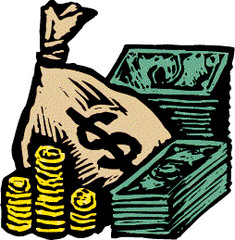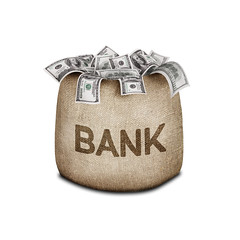AMSCO AP US History Chapter 19 Flashcards
AMSCO United States History 2015 Edition, Chapter 19 The Politics of the Gilded Age, 1877-1900
Terms : Hide Images [1]
| 6209627936 | laissez-faire economics and politics | The idea that government should do little to interfer with the free market. (p. 380) |  | 0 |
| 6209627937 | divided electorate | In the late 1800s, Republicans kept memories of the Civil War alive to remind war veterans of the pain caused by the Southern Democrats. Democrats could count on winning every former Confederate state. (p. 381) |  | 1 |
| 6209627938 | identity politics | Political activity and ideas based on the shared experiences of an ethnic, religious, or social group emphasizing gaining power and benefits for the group rather than pursuing ideological goals. (p. 381) |  | 2 |
| 6209627939 | patronage politics | The use of government resources to reward individuals for their electoral support. (p. 381) |  | 3 |
| 6209627940 | "Solid South" | From 1877 until the 1950s, the Democrats could count on winning every election here. (p. 381) |  | 4 |
| 6209627941 | immigrant vote | In the North, one source of Democratic strength came from the immigrant vote. (p. 381) |  | 5 |
| 6209627942 | Stalwarts, Halfbreeds, and Mugwumps | Groups which competed for lucrative jobs in the patronage system. (p. 381) |  | 6 |
| 6209627943 | Pendleton Act of 1881 | Set up by the Civil Service Commission, it created a system where federal jobs were awarded based on competitive exams. (p. 384) |  | 7 |
| 6209627944 | Grover Cleveland | In 1884, he was elected president of the United States. He was the first Democratic president since 1856. (p. 383) |  | 8 |
| 6209627945 | high tariff | In the 1890s, tariffs provided more than half of the federal revenue. Some Democrats objected to the tariffs because the raised the price on consumer goods and made it for difficult for farmers to sell to export because foreign countries enacted their own tariffs. (p. 385) |  | 9 |
| 6209627946 | "hard" money vs. "soft" money | Money backed by gold vs. paper money not backed by specie (gold or silver). (p. 384) |  | 10 |
| 6209627947 | creditors vs. debtors | Debtors wanted more "easy, soft" money in circulation. On the opposite side creditors stood for "hard, sound" money - meaning currency backed by gold. (p. 384) |  | 11 |
| 6209627948 | Panic of 1873, "Crime of 73" | Congress stopped making silver coins. (p. 385) |  | 12 |
| 6209627949 | Specie Resumption Act of 1875 | Congress sided with creditors and investors when it passed this act which withdrew all greenbacks (paper money not backed by gold or silver) from circulation. (p. 385) |  | 13 |
| 6209627950 | Greenback party | This political party was formed by supporters of paper money not backed by gold or silver. (p. 384) |  | 14 |
| 6209627951 | James B. Weaver | In 1892, he was the Populist candidate for president. He is one of the few third party candidates in history to have ever won any electoral votes. (p. 387) |  | 15 |
| 6209627952 | Bland-Allison Act of 1878 | In 1878, this act allowed a limited coinage of silver each month at the standard silver-to-gold ratio of 16 to 1. (p. 385) |  | 16 |
| 6209627953 | run on gold reserves, J.P. Morgan bail out | A decline in silver prices encouraged investors to trade their silver dollars for gold dollars. The gold reserve fell dangerously low and President Grover Cleveland was forced to repeal the Sherman Silver Purchase Act of 1890. The president then turned to J.P. Morgan to borrow $65 million in gold to support the dollar and the gold standard. (p. 387) |  | 17 |
| 6209627954 | rise of the Populist Party | In 1892, delegates met in Omaha, Nebraska to draft a political platform that would reduce the power of trusts and bankers. They nominated James Weaver as their candidate for president. (p. 386) |  | 18 |
| 6209627955 | Omaha Platform | In 1892, the Populist party met in Omaha, Nebraska to draft this political platform and nominate a presidential candidate. (p 386) |  | 19 |
| 6209627956 | Panic of 1893 | In 1893, the stock market crashed as a result of speculation in railroad companies. One of the worst and longest depressions in U.S. history. (p. 387) |  | 20 |
| 6209627957 | Coxey's Army, March on Washington | In 1894, Populist Jacob A. Coxey led a march to Washington to demand that the federal government spend $500 million on public works programs. (p. 388) |  | 21 |
| 6209627958 | William Jennings Bryan | The 1896 Democratic nominee for president. (p. 388) |  | 22 |
| 6209627959 | "Cross of Gold" Speech | William Jennings Bryan gave this speech at the 1896 Democratic convention. The prosilver and anti-gold speech assured him of the nomination. (p. 389) |  | 23 |
| 6209627960 | start of the modern presidency | William McKinley emerged as the first modern president, he would make America an important country in international affairs. (p. 390) |  | 24 |
| 6209627961 | era of Republican dominance | The election of McKinley in 1896 started an era of Republican dominance of the presidency (seven of next nine elections) and Congress. (p. 390) |  | 25 |
